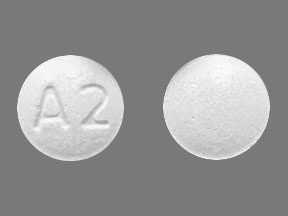
Oxybutynin Chloride Coupons & Savings Card – Discount Prices from $45.82
Generic for: Gelnique
Oxybutynin is a medication prescribed for managing overactive bladder (OAB) and certain urinary conditions, including incontinence in children with neurological issues like spina bifida. It functions by relaxing bladder muscles, thereby reducing spasms and the frequent urge to urinate. Oxybutynin belongs to a group of drugs called antispasmodics, specifically anticholinergic and antimuscarinic agents. This medication is available in both short-acting forms, to be taken 2 to 4 times daily, and a long-acting form taken once a day. While effective, it may cause side effects such as dry mouth, constipation, and dizziness. Older adults may require lower doses to minimize these risks. Always consult healthcare professionals for personal medical advice before starting or adjusting any medication regimen.
Our coupons are free to use. Before paying, show the pharmacist your Oxybutynin Chloride savings card to get your free discount. Use our filters below to edit the prescription box to match your needs. The Oxybutynin Chloride prices will update based on your prescription needs. Above our Oxybutynin Chloride coupons, you can change your location to see pharmacy prices and costs in other areas. We're here to help you buy Oxybutynin Chloride at the lowest price with our prescription discount card.
My prescription
Edit
2.5MG, Oxybutynin Chloride (60 Tablets)
Select pharmacy

CVS
$116.20
COUPON PRICE
Walgreens
$45.82
COUPON PRICE
Walmart
$126.25
COUPON PRICE
Albertsons
$145.42
COUPON PRICEOxybutynin Chloride savings card
Show this card to your pharmacist
Walgreens
$45.82
BIN
ID
PCN
GRP
015995
LHKPW632492
GDC
DR33
Powered by
Oxybutynin is a medication prescribed for managing overactive bladder (OAB) and certain urinary conditions, including incontinence in children with neurological issues like spina bifida. It functions by relaxing bladder muscles, thereby reducing spasms and the frequent urge to urinate. Oxybutynin belongs to a group of drugs called antispasmodics, specifically anticholinergic and antimuscarinic agents. This medication is available in both short-acting forms, to be taken 2 to 4 times daily, and a long-acting form taken once a day. While effective, it may cause side effects such as dry mouth, constipation, and dizziness. Older adults may require lower doses to minimize these risks. Always consult healthcare professionals for personal medical advice before starting or adjusting any medication regimen.
Our coupons are free to use. Before paying, show the pharmacist your Oxybutynin Chloride savings card to get your free discount. Use our filters below to edit the prescription box to match your needs. The Oxybutynin Chloride prices will update based on your prescription needs. Above our Oxybutynin Chloride coupons, you can change your location to see pharmacy prices and costs in other areas. We're here to help you buy Oxybutynin Chloride at the lowest price with our prescription discount card.
More prescriptions for overactive bladder
coupons from$39.80Save 63%
coupons from$661.75Save 18%
coupons from$39.80Save 63%
coupons from$7.32Save 88%
coupons from$7.29Save 80%
coupons from$66.15Save 43%
coupons from$247.78Save 73%
coupons from$7.29Save 87%
More prescriptions for overactive bladder
Detrol Save 63%coupons from $39.80
Oxytrol Save 18%coupons from $661.75
Tolterodine Save 63%coupons from $39.80
Levsin Save 88%coupons from $7.32
Levsin/sl Save 80%coupons from $7.29
Toviaz Save 43%coupons from $66.15
Vesicare Ls Save 73%coupons from $247.78
Anaspaz Save 87%coupons from $7.29
Oxybutynin Chloride dosage forms
Use our Oxybutynin Chloride 2.5MG coupon with prices from $116.20 for 60 Tablets. You can also use our Oxybutynin Chloride 2.5MG coupon with prices from $189.47 for 100 Tablets. We have a Oxybutynin Chloride 5MG coupon with prices from $2.56 for 1 Tablet. You can use our Oxybutynin Chloride 5MG coupon with prices from $3.39 for 15 Tablets.
Dosage Quantity Price from Per unit 2.5MG 60 Tablets $116.20 $1.94 2.5MG 100 Tablets $189.47 $1.90 5MG 1 Tablet $2.56 $2.56 5MG 15 Tablets $3.39 $0.23 5MG 20 Tablets $3.69 $0.18 5MG 30 Tablets $4.29 $0.14 5MG 42 Tablets $5.01 $0.12 5MG 60 Tablets $6.08 $0.10 5MG 90 Tablets $14.37 $0.16 5MG 100 Tablets $14.97 $0.15
| Dosage | Quantity | Price from | Per unit |
|---|---|---|---|
| 2.5MG | 60 Tablets | $116.20 | $1.94 |
| 2.5MG | 100 Tablets | $189.47 | $1.90 |
| 5MG | 1 Tablet | $2.56 | $2.56 |
| 5MG | 15 Tablets | $3.39 | $0.23 |
| 5MG | 20 Tablets | $3.69 | $0.18 |
| 5MG | 30 Tablets | $4.29 | $0.14 |
| 5MG | 42 Tablets | $5.01 | $0.12 |
| 5MG | 60 Tablets | $6.08 | $0.10 |
| 5MG | 90 Tablets | $14.37 | $0.16 |
| 5MG | 100 Tablets | $14.97 | $0.15 |
| 5MG | 120 Tablets | $16.16 | $0.14 |
| 5MG | 180 Tablets | $23.19 | $0.13 |
| 5MG | 270 Tablets | $27.28 | $0.10 |
| 5MG | 500 Tablets | $37.74 | $0.07 |
| 5MG | 1000 Tablets | $55.30 | $0.06 |
